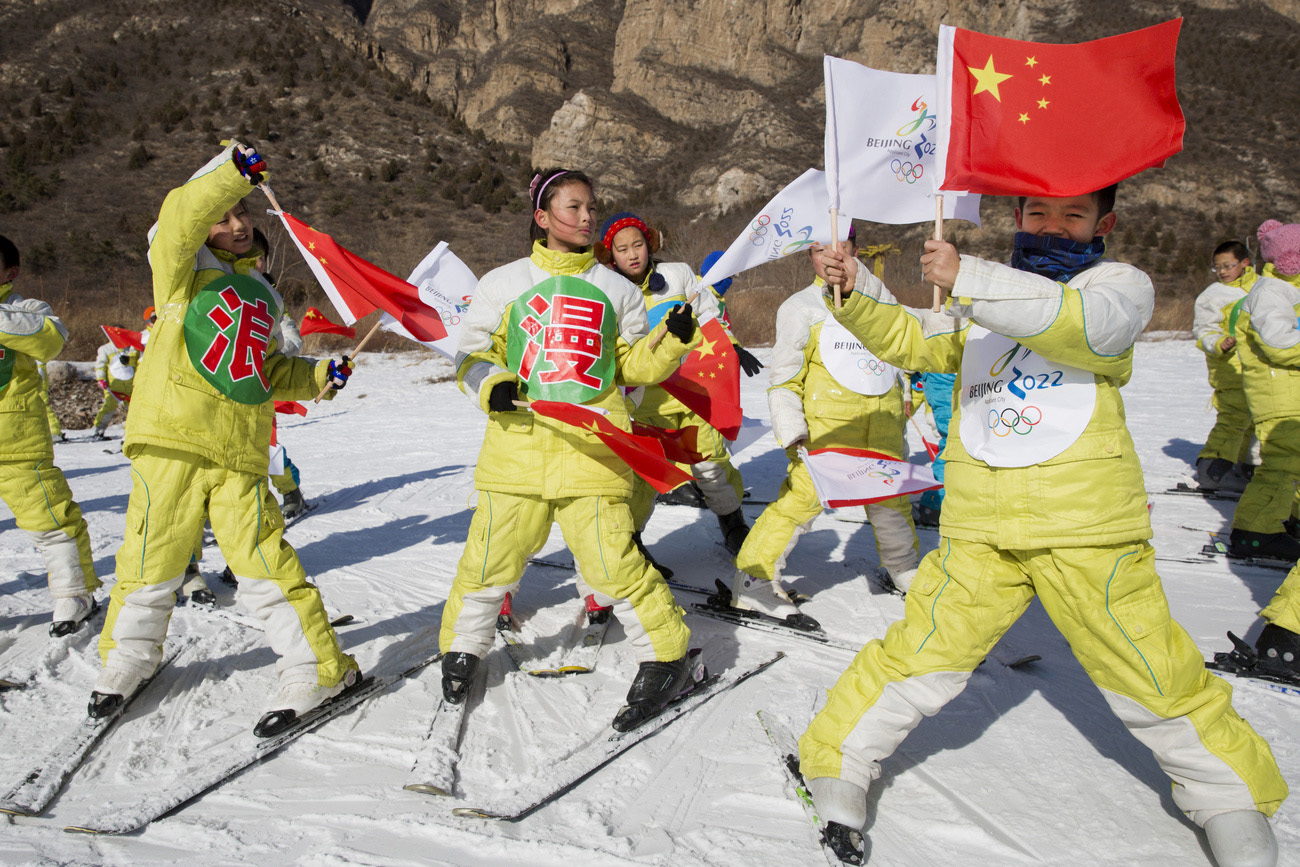
Switzerland Today
Greetings from Bern!
Happy February and Happy Chinese New Year, the Year of the Tiger. You didn’t need a horoscope to tell you that the Beijing Olympics, which kick off on Friday, were always going to be a hot political potato. Read our story on how Covid-19 gave Switzerland the perfect excuse to skip the Games.

In the News: To mark the Chinese New Year, Swiss light artist Gerry Hofstetter and his team have projected a tiger onto the north face of the Eiger.
- Hofstetter said he also wanted to motivate all the athletes participating in Beijing. The projection (pictured) is 5.3km long and over 2km high – more than 1,000 football pitches.
- An exhibition match between Canada’s Olympic men’s ice hockey team and Switzerland was cancelled today after a Swiss player tested positive for Covid-19. Canada is staging a training camp in Switzerland before heading to China. Switzerland face off against defending gold medallists the Russian Olympic Committee in their first match next Wednesday.
- Swiss Air-Rescue (Rega) had the “busiest year in its history”, it said today. Last year it organised 18,017 missions, up 10.7% on the previous year, and came to the aid of more than 12,000 people for the first time since it was founded in 1952.

To go or not to go? Should someone from the Swiss government attend the opening ceremony of the Beijing Olympics on Friday, or should they take a stand against China’s human rights record and boycott it, like countries including the US, the UK, Canada, Denmark and Australia?
Three weeks ago the government said a member of the government would probably attend, unless the pandemic really got out of hand. Then last Wednesday, citing Covid restrictions, it said cabinet members would in fact “cheer on Swiss athletes from home”. The government spokesperson stressed that the decision concerning Switzerland’s third-largest trading partner was not politically motivated.
The announcement that Covid, rather than human rights, is what’s keeping Swiss politicians at home is a sign of the government’s “servility” towards China, said parliamentarian Fabian Molina.
Since calls for a diplomatic boycott began, the Swiss government has carefully calibrated its response, choosing not to take any position on the matter. When pressed on the issue, it has couched its statements in vague diplomatic language. “[Sport] in general and participating in the Olympics in particular should not be vectors of political expression,” it wrote in response to questions from parliamentarians last year.
A diplomatic boycott may not change the situation for Tibetans and Uyghurs immediately, said Fabienne Krebs, a campaign coordinator at Swiss NGO Society for Threatened Peoples, but it is a show of solidarity with these groups.
“We won’t get anywhere and we won’t change anything if every country is doing its own cost-benefit analysis,” she said. “No country is strong enough to stand alone against a China that’s undermining international human rights standards.”
More

Politics aside, Switzerland and China both caught the skiing bug but in different ways. A photo exhibition compares early Swiss ski culture with the growth of the sport in modern-day China.
The photo exhibition “The skiing bug. An investigationExternal link”, which runs until May 1 at the Swiss Alpine Museum in Bern, is full of contrasts.
Part of the exhibition is dedicated to rare black-and-white images by photographers Emanuel Gyger and Arnold Klopfenstein, witnesses to the early beginnings of skiing in Switzerland. In the 1930s the skiing bug spread rapidly through the Alps. The photos show idyllic scenes from the snowy Bernese Oberland region, adrenalin-filled downhill runs, daring jumps and pristine white slopes and peaks.
These historic images contrast with those taken in China. Skiing and ski infrastructure have grown rapidly in China in the past few years. The organisers of the Olympic Games say more than 300 million Chinese now participate regularly in skiing, ice hockey and other cold-weather pastimes. The country now boasts more than 650 standard ice rinks and 803 indoor and outdoor ski resorts.
Some of the images at the exhibition can be seen in our gallery.

In compliance with the JTI standards
More: SWI swissinfo.ch certified by the Journalism Trust Initiative









